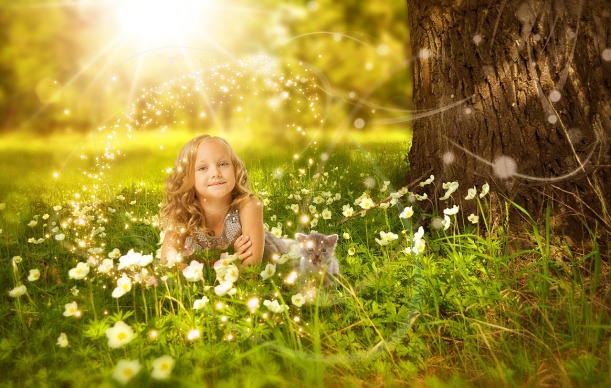I am delighted to feature another fabulous guest post from Ella Andrews – this one tells us how essential it is for our children to understand build a relationship with nature.
Mother Nature is very important for our future. A major part of our future are our kids. We must teach them ecological literacy so as to make them learn how important it is to take care of the environment. Being introduced to nature from when they are little children will help develop in them a deep love and solicitude for their surrounding environment.
While young, kids explore and discover a lot of new things. We can help them expand their knowledge by showing them outdoor activities. The best way is if we have a garden on our property or take them to any of the nearest parks. Once we find a suitable place to play with our kids, we must do some preparations first. Playing outside may be dangerous so we have to do some efficient garden clearance first. Kids will be happy to see how plants smell and how the bees are alighting on them so take them on a trip in a garden that has lots of different flowers.
Once our kids see the beauty of nature, it is almost certain that they will turn into an adult who appreciates the small things and will take care of the natural world. Ecological literacy is important for our kids because if we lose nature, we will be lost too. Each living creature on the planet can’t survive without water and food and this is something that our kids must learn from childhood. Teaching them to take care and respect nature is maybe one of the most important lessons we have to teach them.
Planting some flowers will be very interesting to them, with this you can show them how to take care of something. After some time they will see the growth of their flowers and you will be surprised how satisfied they will be.
Another interesting thing for your kids will be for them to meet a gardener. A gardening professional will help you with not only the lawn care but also may help you with ecological education for your children.
Meeting with nature face-to-face, kids can see the different elements of our surrounding environment working together. Even doing some patio cleaning will show them how to take care of the world around them.
A good ecological literacy is something that is a must for every person in the world. As youngsters, we start understanding the importance of taking care of nature, and we can call ourselves decent people who know what is important for our health in the future. Many schools have classes that show the kids how to take care of nature. All the books and videos won’t educate kids on ecological literacy as much as looking at their parents doing some gardening outdoors and spending time playing in nature.


